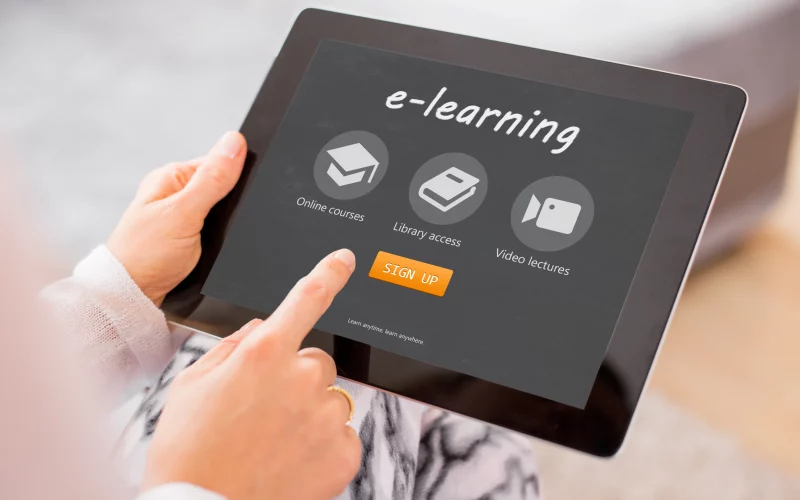The Rise of E-Learning Platforms
E-Learning platforms have seen exponential growth in recent years, catering to diverse learners worldwide. These platforms offer a wide array of courses, ranging from academic subjects to specialized skills and hobbies. E-Learning websites such as Coursera, Udemy, and Khan Academy have become household names, providing learners with flexibility and autonomy over their education journey.
Exploring Popular E-Learning Websites
Coursera: Coursera offers a vast selection of courses from top universities and institutions worldwide. Learners can choose from a range of subjects, including technology, business, arts, and humanities.
Udemy: Udemy provides a platform for instructors to create and sell their courses on various topics. With thousands of courses available, learners can find options suited to their interests and learning goals.
Continuous Learning Opportunities

E-learning facilitates lifelong learning by providing continuous access to updated content and resources. Whether it’s acquiring new skills for career advancement or pursuing personal interests and hobbies, e-learning websites empower individuals to engage in lifelong learning journeys, enriching their lives and expanding their horizons.
Overcoming Challenges in E-learning websites
While e-learning offers numerous benefits, it also presents certain challenges that must be addressed: Despite the widespread adoption of digital technologies, the digital divide persists, with disparities in internet access, device ownership, and digital literacy. Bridging this gap is essential to ensure equitable access to e-learning opportunities for all individuals, regardless of their socioeconomic status or geographic location. While e-learning offers numerous benefits, it also presents challenges that learners may encounter:
Self-discipline: Maintaining motivation and discipline without direct supervision can be challenging for some learners.
Technological Issues: Technical glitches or internet connectivity issues may disrupt the learning process.
Limited Interaction: E-Learning lacks the face-to-face interaction found in traditional classrooms, which may impact social learning and collaboration.
Tips for Successful E-Learning
Set Goals: Define your learning objectives to stay focused and motivated throughout your e-learning journey.
Stay Organized: Create a study schedule and allocate dedicated time for learning each day to maintain consistency.
Engage Actively: Participate in forums, discussions, and interactive activities to enhance your understanding and connect with fellow learners.
Seek Support: Don’t hesitate to reach out to instructors or support staff for assistance whenever needed. E-Learning Websites play a pivotal role in overcoming traditional educational barriers, such as limited access to resources, financial constraints, and geographical isolation. By democratizing education, these platforms empower individuals to pursue their aspirations regardless of their circumstances.
Personalized Learning Paths

Another noteworthy feature of E-Learning Websites is their ability to tailor learning paths according to individual needs and preferences. Through adaptive algorithms and personalized recommendations, these platforms ensure that learners receive content suited to their skill levels and learning objectives.
Conclusion
E-learning websites represent a new era of learning, offering unparalleled opportunities for individuals to acquire knowledge, develop skills, and pursue lifelong learning journeys. With their flexibility, accessibility, and personalized approach, e-learning platforms are transforming education and empowering learners on a global scale.
____________________________________________________________
FAQs
How do I choose the right e-learning platform for me?
Consider factors such as course offerings, instructor credibility, user reviews, and pricing options to find the platform that aligns with your learning needs and preferences.
Are online certificates from e-learning platforms recognized by employers?
Many employers recognize certificates from reputable e-learning platforms as valuable credentials, especially for acquiring specific skills relevant to the job market.
Can I learn at my own pace with e-learning courses?
Yes, one of the advantages of e-learning is the flexibility to learn at your own pace, allowing you to balance learning with other commitments.
Is e-learning suitable for all subjects and skill levels?
E-learning platforms offer a wide range of courses catering to various subjects and skill levels, making it suitable for learners with diverse interests and backgrounds.
How can I stay motivated while learning online?
Setting achievable goals, staying organized, and seeking support from peers or mentors can help maintain motivation and focus during online learning.
Are there free options available for e-learning?
Yes, many e-learning platforms offer free courses, while others provide trial periods or financial aid options to make learning accessible to all.









